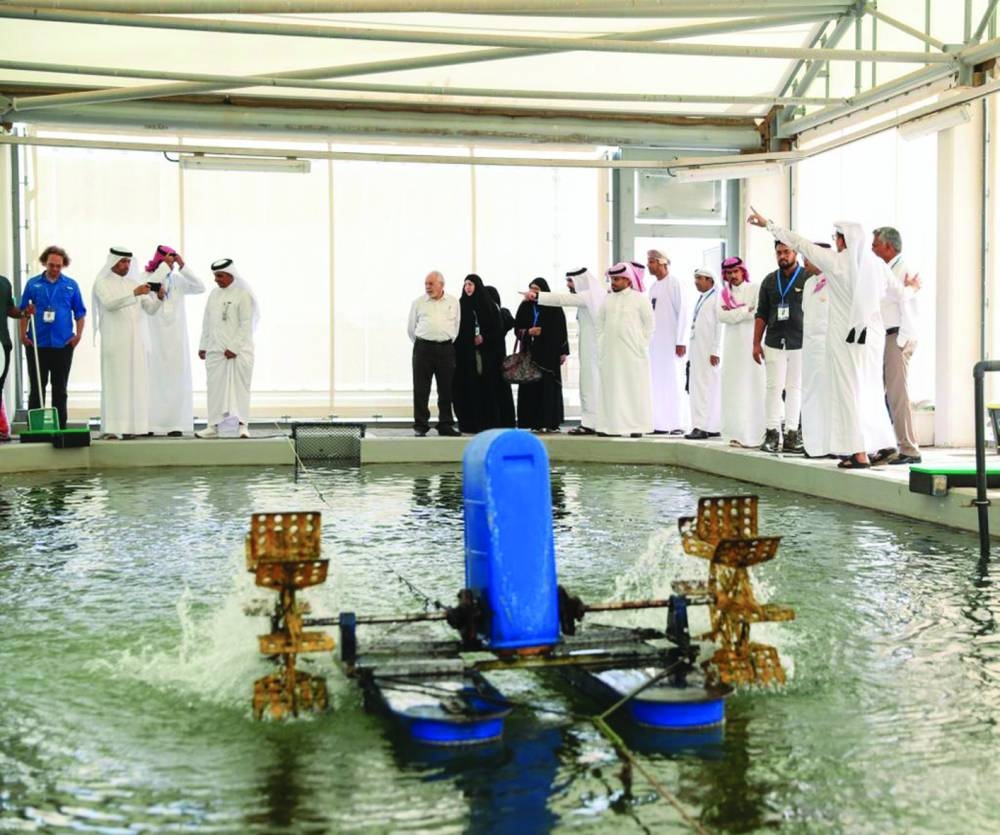Organised by the Ministry of Environment and Climate Change (MoECC) in partnership with the UN Educational, Scientific and Cultural Organisation (Unesco) at the Aquatics & Fisheries Research Centre in Ras Matbakh, the forum offered the delegations a chance to have a glimpse of the regulations and rules laid out by the MoECC to conserve and protect the whale shark, including the cutting-edge technology utilised by the MoECC's researchers during the studies conducted on the congregation of this marine species.
Rigorous tracking programme recommended
- Ministry of Environment Wraps Up Whale Shark Conservation Forum 2023 With Marine Tours.
- Recommendations highlight need to conduct rigorous tracking programme to better comprehend distribution of whale sharks and human activity's impact on them.
- Need for regional convention for GCC states to conserve whale shark and its habitats, forming rescue team at MoECC to undertake mission of rescuing sharks upon their entry to ports.
- Call for guidelines for responsible tourism to reduce disturbance to whale sharks, and for designating their breeding areas as natural reserves.
He added that attendees shared ideas, information and facts related to whale shark regardless of the forum's recommendations which constitute a roadmap for all parties to conserve this endangered species.
Commenting on the recommendations, al-Khanji outlined that the forum stressed the importance of all parties' action to sign international conventions that conserve the whale shark, such as the Convention on Biological Diversity, the Convention on International Trade in Endangered Species of Wild Fauna and Flora, the Convention on the wildlife, et al, noting the importance of launching campaigns to assist sharks that are stranded in their course of migration.
He stressed the importance of conducting a rigorous tracking programme to better comprehend the distribution of whale sharks and human activity's impact on them, as well as setting guidelines for the responsible tourism to reduce disturbance to whale sharks and designate their breeding areas as natural reserves.
In addition, al-Khanji underscored the importance of co-opting a regional research team to further monitor and study whale shark in the Gulf region and Red Sea, as well as utilising state-of-the-art technologies such as shark ultrasound in pursuit of evaluating its health in families, conducting a holistic survey for the Gulf region to identify its habitat and ensure encouraging sustainable eco-tourism.
Al-Khanji recalled the importance of the concerned entities' coordination to hold awareness workshops for fishermen and formulate a set of effective rules and legislation to manage the migrating species such as whale shark, in addition to reporting death cases and capitalising on the bodies of dead animals to be used in scientific and awareness purposes in research centers and museums, imposing fines in case of attacking or hunting whale shark.
He emphasised the necessity of proposing a regional convention for GCC states to conserve whale shark and its habitats, forming rescue team at the MoECC to undertake the mission of rescuing sharks upon their entry to ports, as well as incorporating whale shark into the Convention on the Preservation of Wildlife and its Natural Habitats in GCC states.
In the meantime, the organising committee organised a tour for delegations of participating countries in collaboration with the Ministry of Municipality inside the Aquatics & Fisheries Research Centre to introduce work mechanisms of the center which largely help conserve marine species and ensure their breeding, such as aquaculture in local fish and shrimp through pursuing the best scientific and technological means.
Within the three main sessions during which 17 research papers from local, regional, and international experts were presented, the forum discussed several topics relevant to the conservation of whale shark, including the influential factors that impact its life.
The forum focused on a plethora of objectives such as discussing the methods of conserving whale sharks and developing them to identify the most important challenges facing these endangered fishes generally, and determine the best methods to overcome these challenges, in addition to gathering stakeholders under one umbrella to discuss various topics related to whale shark and raising awareness of the criticality of protecting these fishes, as well as boosting cooperation and partnerships among attendees and discussing ways to develop regional strategies to conserve whale sharks.



